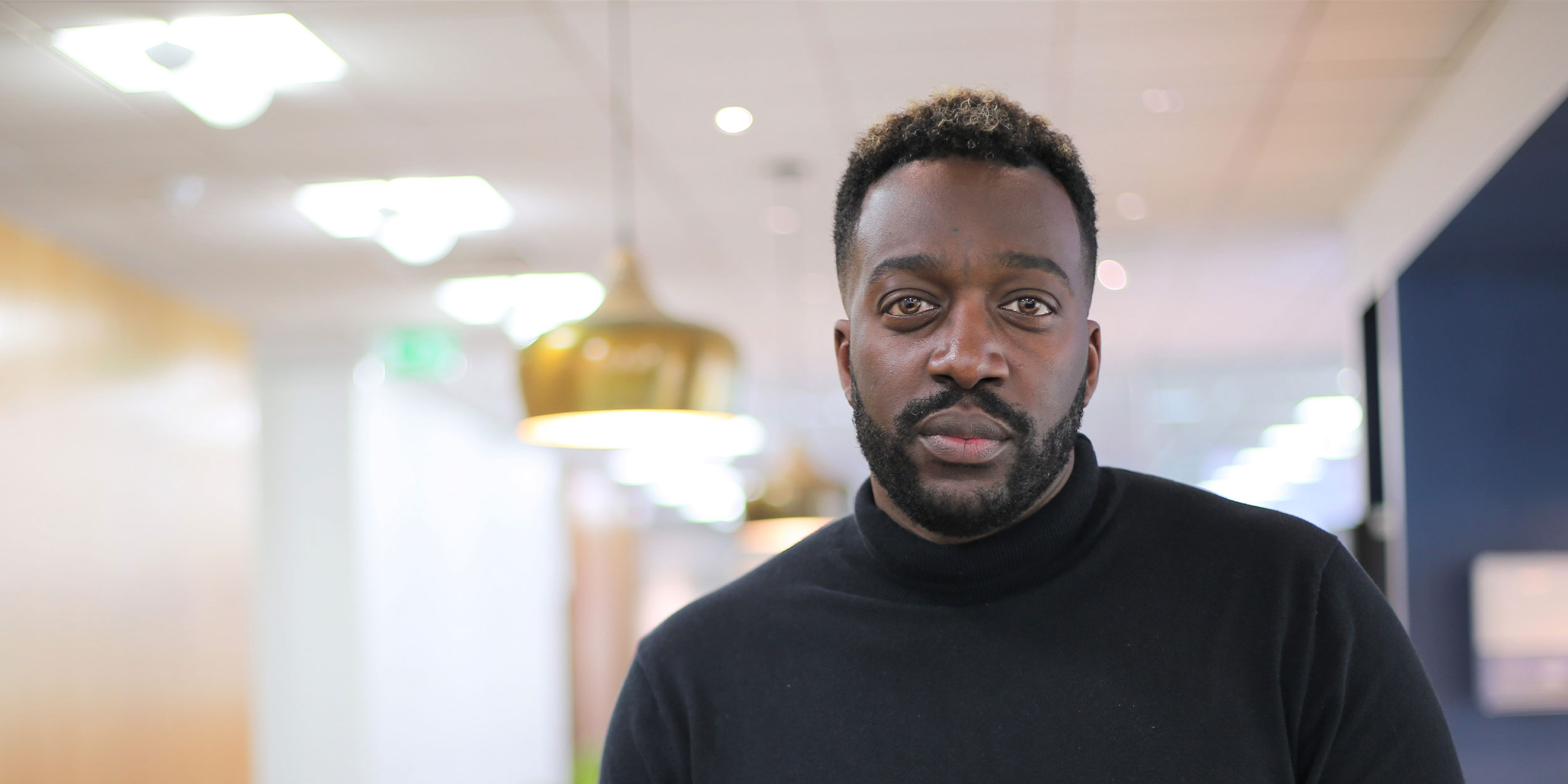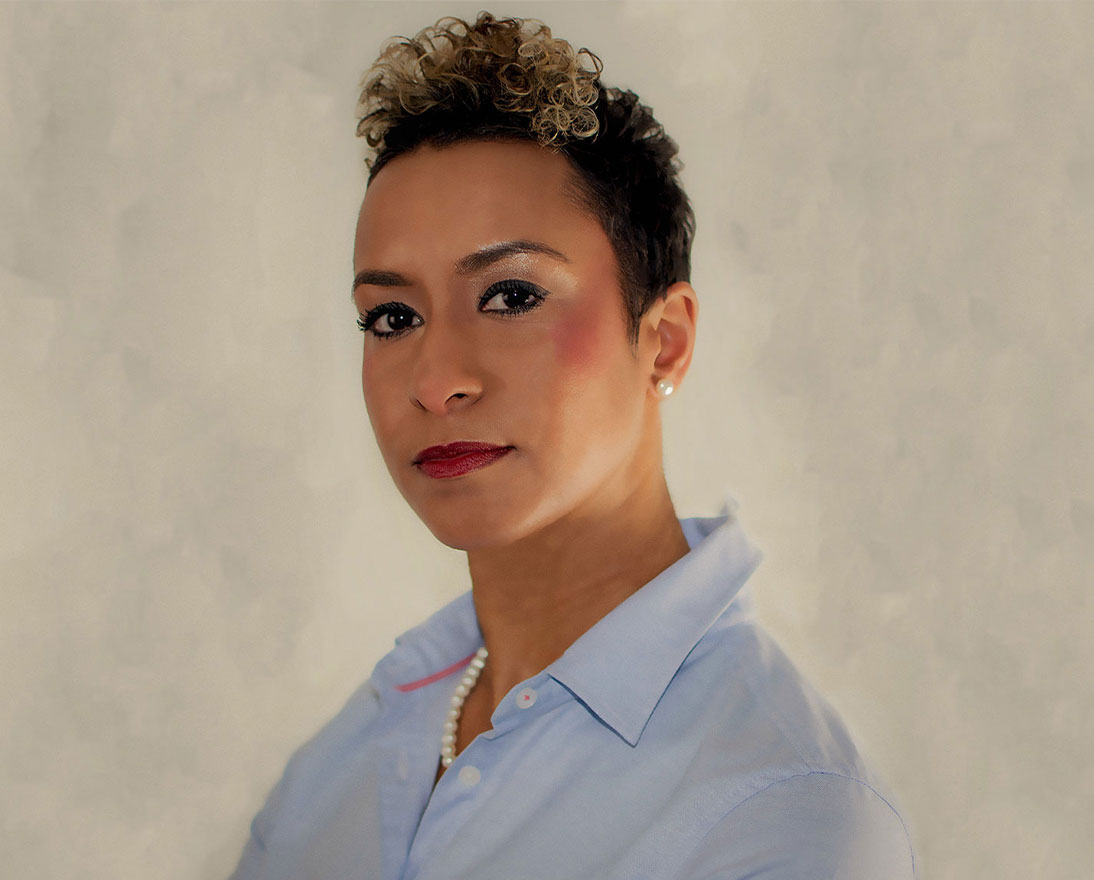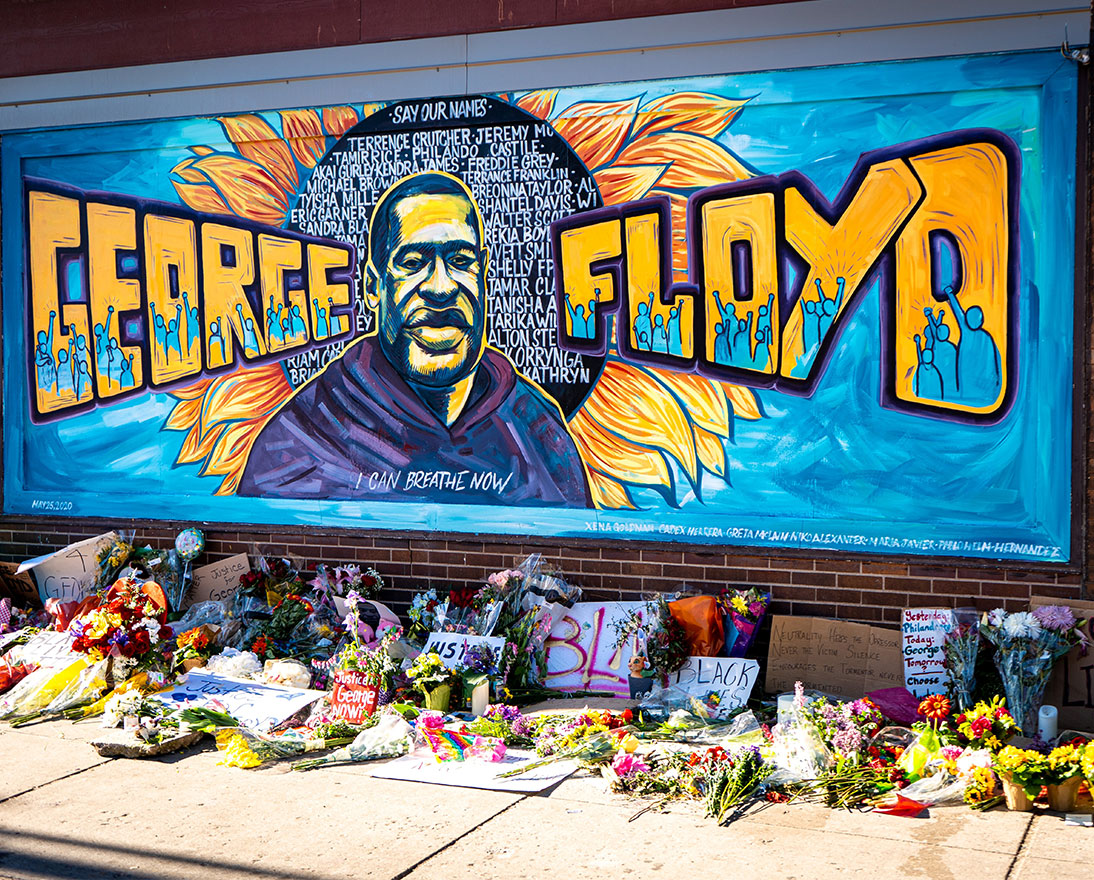Black Voices: Learning to speak up against racism
PeopleArticleMarch 1, 20228 min read
Sam Reason used to feel like he had to suppress his Blackness and prove himself worthy in work environments in which he experienced subtle racism. Now he challenges racial abuse by speaking up for himself.
“Two years ago, I got a promotion and a comment was made by a white male colleague: ‘do you feel that’s justified or is it a token gesture?’. He thought he was making a friendly comment, but he was actually doubting my ability by asking that question.
“I explained I had worked hard for my promotion. I was having to defend myself to this individual about a comment he had made,” says Sam Reason.
What frustrates Sam when recalling that experience, is at the time he felt he had to justify his promotion. When in fact, he should have called out that comment for being racist.
“When I grew up, I was confident about who I was. But in the corporate world, I suppressed my Blackness. I thought being too Black could hinder my chances of future progression.
“I feel I need to sometimes tailor my attitude more than a white individual. I make sure I’m extra smiley, extra polite, or I watch the tone of my voice because I don’t want people thinking I fit the stereotype of ‘an angry Black man’.”
Sam’s decision to subdue his personality is based on experience. “In the past I’ve had feedback from colleagues and managers saying I’m ‘a bit aggressive’ or that they ’didn’t like my tone’. I’ve not said anything different to white colleagues. But what may be considered assertive, when said by me is judged aggressive.”
It means Sam feels he cannot always express his feelings, especially if something at work frustrates, upsets, or angers him. And he believes he constantly needs to prove himself to ensure he is not branded a ‘token gesture’.
“I’ve always felt I have had to work twice as hard as a white individual so someone can’t say, ‘Sam, you got that role to tick a box’. I still sometimes hear people say it’s easier for a female or a Black person to get ahead because the company has a diversity quota/target. I think, ‘hang on! What if we’re just really good at our job?’”
Subtle racism
The reason Sam feels like this is due to the subtle racism he experiences on an almost daily basis.
“People don’t think they’re being racist, they think they’re having a laugh or even giving a compliment. I regularly get comments like, ‘I bet you can’t swim’, ‘can I feel your hair?’, ‘you’ve got a Brillo Pad on your head’, ‘you don’t need sunscreen’.
“Another hurtful line people often say is: ‘you’re nothing like I thought you would be, you’re quite alright’. Or ‘you’re not all bad’.
“These comments, although not blatant in your face racism, do as much damage because you hear them time and time and time again.”
Sam says this kind of subtle racism can be harder to deal with than deliberate racism. “If someone’s blatantly racist, you know their agenda, their motive, and you know exactly what they’re saying and why they’re saying it.
“But when people make subtle racist comments, they often don’t believe or realize they’re being racist and maybe don’t mean it. So, if you challenge them, they’ll often be defensive, ‘I’m not harming anybody, it’s only a joke’. Or, they may think I’m being over-sensitive. But imagine if you were on the receiving end of that joke? How would you feel?”
Due to this defensive reaction, in the past Sam has usually ignored these types of comment in the office, because he “didn’t want to upset the applecart”. But he finds it tiring having to always show he doesn’t fit the negative stereotypes of a Black man.
These experiences go beyond the office. He says people sometimes cross the road when they see him walking towards them. “Skin color is the most obvious characteristic so people can clearly tell I’m Black from a distance. They may think ‘what’s this person like?’. And, they will have preconceived notions that may cause them to cross the street.”
Sam says he has gone through phases in his life when these comments and actions have made him angry or upset. But worse still, he began to accept them. For example, Sam says he has crossed the road himself to stop someone feeling uncomfortable when he walks past them.
“Sometimes when I’ve done it, I thought, ‘why? Why have you done that?’ But I tell myself, ‘it’s the way it is and it’s the way I must operate’. But acceptance is the worst possible thing. If you just accept it, then it will never change. Then we’ve all lost.”
White role models
But Sam has two white role models that continue to inspire him: his adoptive parents, John and Jan.
Sam’s mother came to London from Nigeria in the 1980s to study and stayed with John and Jan in Greenwich, south-east London. But while studying she became pregnant and gave birth to Sam. She kept Sam a secret from her family in Nigeria so when she traveled home, she left Sam in the care of John and Jan. When her studies finished after five years, she went back to Nigeria – but this time never returned.
John and Jan officially adopted Sam when he was aged 6 and moved to Swindon, in the west of England. Moving from a predominately Black neighborhood to a white area.
“It was more difficult for my parents than for me. They told me when I was older that they got looks and comments like: ‘why has a white family adopted a black child?’, ‘how are you going to raise him?’, even silly stuff like ‘you won’t know how to brush and cut his hair’. But they considered me as their son and protected me from any harsh racism when I grew up.”
John and Jan didn’t just protect Sam from racism, they encouraged him to embrace his Black/African roots and regularly took him back to London to immerse himself within Black communities.
“It was a confusing time. In Swindon I was too Black, in London not Black enough. Some of the children in Swindon thought it ‘weird’ that a Black child lived with a white family, but I was called a ‘coconut’ in London – black on the outside, white on the inside.”
But his parents prepared him for these challenges. “They always said to me, ‘you might grow up in a white family, but you’re Black. This means life may not go as smoothly for you than if you were white. So, you need to be around Black people and understand your culture, because you might go through stuff where you need to stand up for yourself’.”
And right now, Sam is standing up for himself.
Finding his voice
“In the last year I’ve decided to speak up and encourage change. I believe Zurich as a company wants to change. Are we there? No, because I’m in conversations about how we do get there – wherever ‘there’ is. I want to be part of that journey to share my experiences, educate people, and act as an ally.”
For instance, earlier this year Sam went to his local shop wearing a face mask, to protect against COVID-19, and a baseball cap. “I was in the queue and this older gentleman, I didn’t know him, said to me, ‘I bet it’s easier for you now to commit crime’, and he giggled. He said it as if it was okay as it was intended as a joke. I said: ‘Sorry, I’m not quite sure what you mean by that?’.
“He responded: ‘I was only joking because you know how it is?’. ‘No I don’t, can you explain?’. At this point the lady behind me intervened and described his comment as ‘completely disgusting’. He responded: ‘everyone’s too sensitive, I didn’t mean anything by it’.
“I explained to him that he could have really hurt my feelings, or even caused a situation. I told him that thankfully I thought he was just ignorant rather than a damned right racist.”
Sam will continue to challenge both subtle and blatant racism. He has added incentive as he has three children and his hope is that they will not have to hear the types of comment their father endures.
“Equality is a right; it doesn’t deserve credit or applause,” says Sam. “We all have our part to play in diversity and inclusion, I am fully behind making changes for the better. I am so proud to be Black and will never shy away from that.”



